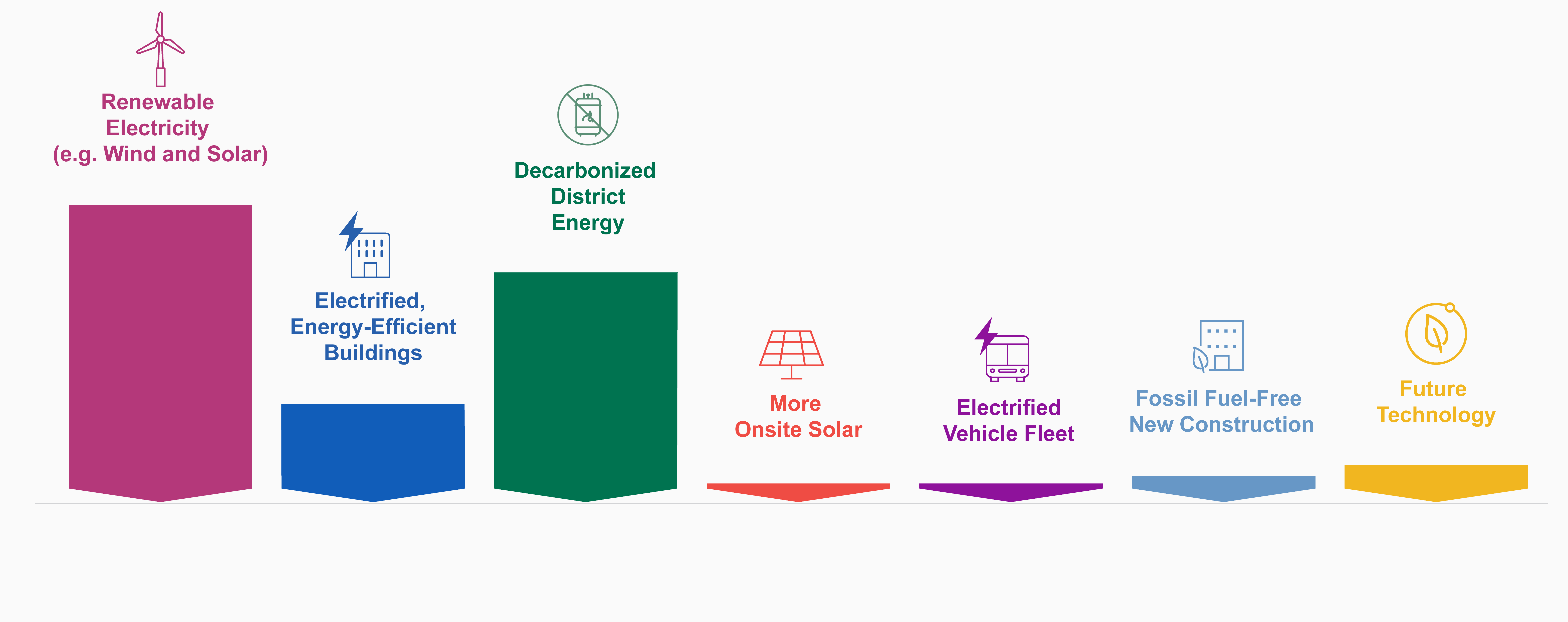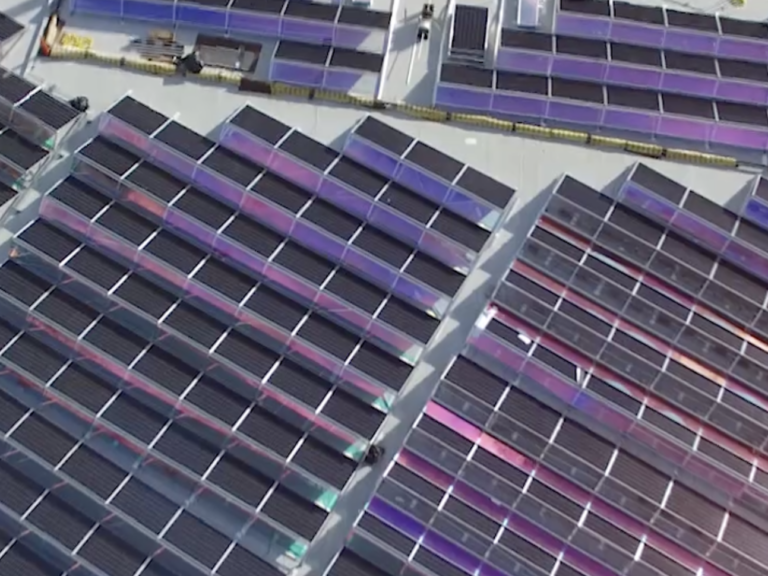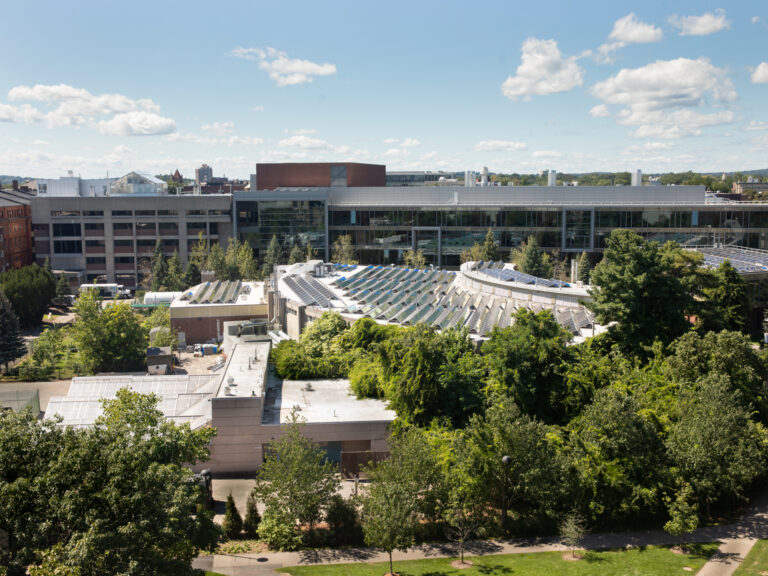CLIMATE ACTION
Harvard’s Path to Fossil Fuel-Free
Goal Zero: A Fossil Fuel-Free Harvard

In February 2018, Harvard set a goal to be Fossil Fuel-Free by 2050. Known as Goal Zero, this target is focused on eliminating the use of fossil fuels in Harvard’s buildings, district energy systems, and vehicles, as well as the negative health impacts they cause. Focusing on addressing the wider, harmful impacts of fossil fuels, rather than only greenhouse gas (GHG) emissions, enables Harvard to drive progress across climate, health, and wellbeing for all.
Harvard’s initial climate goal was set in 2008 and achieved in 2016. By meeting this goal, the University successfully reduced its GHG absolute emissions (Scopes 1 and 2) by 30% from a 2006 baseline, even as the campus grew its physical footprint by 16%. Now, Harvard is focused on bolder goals to transition to a fossil fuel-free future.
Why Fossil Fuel-Free?
- Drive progress on climate: Burning fossil fuels is the primary driver of climate change. The use of fossil fuels pollutes the air and water, damaging human health—which is why Harvard is taking a holistic approach that incorporates climate, health, and wellbeing for all.
- Reducing the health impacts of fossil fuel use + production: By recognizing the full set of damages caused by our use of fossil fuels, rather than only carbon emissions, Harvard is seeking to reduce the negative health impacts of fossil fuel use and production.
- Reducing waste and creating a healthier value chain: Fossil fuels are also a main ingredient in many plastics and toxic chemicals, which is why part of our mission is to reduce purchasing and using those harmful materials by requiring the purchase and use of healthier materials.
Developing Our Fossil Fuel-Free Roadmap
Harvard is focused on evaluating all technologies to chart a path to Goal Zero, or Fossil Fuel-Free by 2050. Harvard is acting where we can and researching all technologies that will allow us to decarbonize our infrastructure.

We are working at Harvard to procure renewable electricity, decarbonize our central heating plants, electrify our historic campus buildings and our vehicle fleet, invest in on-site solar, and ensure all new construction is designed to rely on clean energy that does not rely on fossil fuels.
Evaluating Fossil Fuel-Free Solutions
Possible solutions we are exploring include the use of:

- Ground-source heat pumps (GSHP)
- Heat recovery chillers
- Air source heat pumps
- Steam and high temperature hot water heat pumps
- District energy solutions
- Building-level solutions
- Energy Storage
Maintaining a flexible, long-term approach allows Harvard to pilot and explore the most impactful solutions first.
Harvard sets second-generation climate goals
In 2018, Harvard launched a new climate action plan and path forward to shift campus operations further away from fossil fuels. The plan announced the University’s two significant science-based targets to reduce emissions dramatically: a long-term goal to be fossil-fuel-free by 2050, and a short-term one to be fossil-fuel-neutral by 2026.

Research & Teaching Informing Fossil Fuel-Free Strategy
Harvard’s world-class faculty and students are dedicated to advancing solutions through their cutting-edge academic research and by translating that research into action. The Salata Institute for Climate and Sustainability is changing how Harvard is addressing the climate crisis by serving as a fulcrum for collaboration across the University’s many areas of expertise, pursuing practical, real-world solutions.
A Holistic Approach
Understanding the Health Impacts of Fossil Fuels
Focusing on addressing the wider harmful impacts of fossil fuels, rather than only greenhouse gas emissions, enables Harvard to drive progress across climate, health, and wellbeing for all.

3 Key Takeaways from New Study on Building Electrification – Introducing the Falcon Curve
The Harvard Healthy Buildings program collaborated with researchers at Boston University School of Public Health, Oregon State University, and the nonprofit Home Energy Efficiency Team on a study examining the seasonal fluctuations of building energy demand and its implications for building electrification. Here we provide 3 key takeaways from our study.

